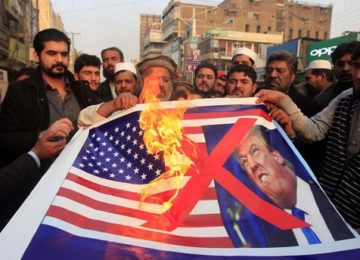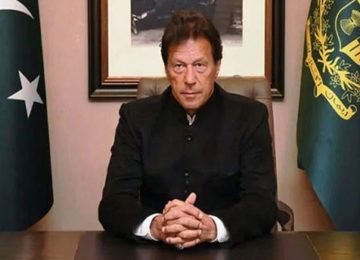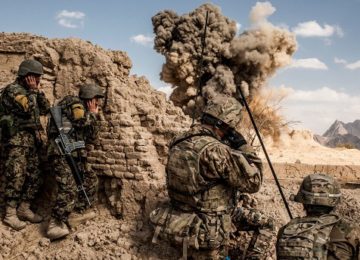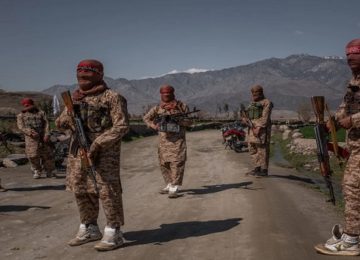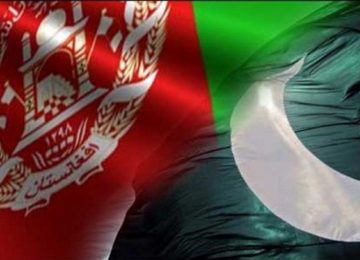‘With state initiatives failing to restore peace, initiatives such as Track II diplomacy could help reduce the level of tensions between Afghanistan and Pakistan’
Pakistani Prime Minister, Shahid Khaqan Abbasi, visited Afghanistan on April 6 for a day-long visit at a time when the bilateral relations between both countries are tense. Officials on both sides hope that this visit, aimed at strengthening bilateral political, economic, security and counter-terrorism cooperation would go a long way in restoring trust between the two countries.
Both Pakistan and Afghanistan have historically had an uneasy relationship, primarily because of the contentious nature of the Durand Line despite having shared culture and history. Since Pakistan’s independence in 1947, a huge trust deficit has existed between the two countries mainly attributed to Pakistan’s intervention in Afghanistan’s domestic affairs. On Afghanistan’s part, the country has also implicitly, and sometimes explicitly, supported Pashtun nationalist parties — especially during Daud Khan’s reign — in Pakistan’s Pashtun dominated territories.
However, Afghanistan’s scepticism towards Pakistan has amplified since the United States Invasion of Afghanistan in 2001. This has mainly happened due to Islamabad’s alleged policy of supporting the anti-US and anti-Kabul Haqqani network in the country’s tribal areas. Even though Pakistan, especially its military establishment, now explicitly rejects any support for the Haqqanis, along with boosting its success in the countering terrorism in FATA, both Washington and Kabul have found these claims less than convincing. Thus, with Afghanistan’s security situation still far from stable, and Pakistan still encountering terror attacks from across the border, there is a growing need for better ties between the neighbours.
The shared knowledge of jirgas, between Pashtuns on both sides, could help unite brothers on both sides of the Durand Line
The Pashtun Jirga is one such traditional mechanism that could play a major role towards such an improvement. The shared knowledge of jirgas, between Pashtuns on both sides, could help unite brothers on both sides of the Durand Line which remain at war. Even though jirga mechanisms often invite criticism — with lack of basic human rights afforded to women — the structure could still be used as an informal mechanism, under a Track II model, to build trust and lay a foundation for future cooperation.
The shared knowledge of jirgas, between Pashtuns in both Afghanistan and Pakistan, could help unite families on both sides of the Durand Line.
Track II diplomacy has come to prominence since the end of the Cold War, with the mushrooming of Non-Government Organizations (NGOs) that have evolved as important non-state actors and policy-making (and influencing) bodies.
In South Asia, the use of Track II diplomacy has somewhat been successful in terms of confidence building measures (CBMs) between India and Pakistan. So far, these CBMs successfully have resulted in three agreements between both the neighbours relating to ballistic missile fight test notification agreement, military exercise notifications, and constraint along Pakistan and India border. Organisations like PILDAT and Jinnah Institute in Pakistan and IPCS and ORF in India have occasionally played an important part in Indo-Pak CBMs. Hence, if Track II projects can help two nuclear-armed adversaries, they can surely play a role in the improvement of Pak-Afghan ties.
Jirga-based CBMs and Track II initiatives are not new for Afghanistan and Pakistan. In 2007, a grand jirga represented by both the countries emphasized the need for peace in the region. This initiative, at that time, also had the backing of Afghan President Karzai and Pakistani President General Musharraf. However, when a joint Afghan-Pak jirga was finally announced on a state level, General Musharraf backed out at the last minute, dealing a severe blow to the initiative. It was believed at that time that Musharraf was never serious about the initiative and that he had only agreed to it under US pressure. Later in 2011, another jirga — headed by former Afghanistan President Rabbani — tried negotiating peace between Afghanistan, Pakistan and the Taliban. However, his death in a suicide attack in September 2011 again dealt a severe blow to the peace process.
Civil society in both countries has also played its part over the years through Track II initiatives. Islamabad-based Centre for Research and Security Studies (CRSS), in collaboration with DURAN Research and Analysis (DRA) and Women & Peace Studies Organization (WPSO), undertook a unique series of twelve meetings between December 2015 and March 2017, bringing together over 100 Afghan and Pakistani security and civil society experts to discuss bilateral acrimony, address grievances and help de-escalate tensions.
This initiative, titled ‘Beyond Boundaries,’ has helped enhance people-to-people contacts between both the neighbours. Meetings for these initiatives take place in both Pakistan and Afghanistan, involving members of civil society including students, politicians, media personalities, and academics. Also, previously, Islamabad-based Regional Peace Institute (RPI) has initiated several Track II exchanges between both the countries. The initiatives by CRSS and RPI were conscious efforts to bridge the gulf of mistrust between the two neighbours and encourage networking among group members to help improve local perceptions for the other side.
With state initiatives failing to restore peace, initiatives such as Track II diplomacy could help reduce some level of tensions between Afghanistan and Pakistan.
The writer is a Ph.D. Candidate at the University of Newcastle. He tweets @faruqyusaf
This article originally appeared in Daily Times on April 11, 2018. Original link.
© Center for Research and Security Studies (CRSS) and Afghan Studies Center (ASC), Islamabad.




